Dr Vere Allin is one the most familiar and best-loved faces in the racing community and beyond. The Sporting Post recently heard a rumour that he was planning to emigrate and were relieved to hear that news of his departure was entirely unfounded.
Where were you born?
I was a war baby, born in Birmingham in 1942. My mother’s side of the family were farmers from the Cotswolds and my dad was a GP in Birmingham.
How did you get into horses and what made you want to be a vet?
We had a smallholding so I started riding when I was about 10. I had a little Welsh Mountain Pony. My parents used to foxhunt and I started joining them when I was 12. I originally wanted to be a farmer, but my dad said no and wanted to send me to university. A friend suggested marrying the two and that’s how I settled on being a vet. I qualified in Glasgow in 1965.
What brought you to South Africa?
After I qualified, I spent 2 years in the South of England. I just had the feeling that, happy as I was there, that I should go overseas and go and see some of the world. A few of my colleagues had gone to New Zealand and given a good report of it, so I originally applied to New Zealand house. Then I saw a notice in the Veterinary Record advertising for vets to go to South Africa. The ad was from George Faull. I applied, met his daughter in London, they said I was OK and I got the job. At the time David Burgess had a practice in the South of England, about 10 miles from me and I went to see him and asked his advice. He said ‘go, you won’t regret it.’ George Faull was married to a Miss Allen, they had a son named Vere and a son called Alan. My initials are CVH and I was joining CVH—Cape Veterinary Hospital–so it was meant to be. I came to South Africa for two years and never went home! You’ll find quite a lot of Scottish vets here and quite a number back in Scotland who have worked here.
George Faull was a very well-known vet and personality – what was he like to work for?
George was a perfect gentleman and the most wonderful person to work for. We had basic facilities down at the old Pet O’Tel in Ottery. We ran a mixed practice, but there were some stables.
How did Cape Vet come about?
We did most of the racehorse work in those days, so I opened up a practice in Milnerton and started up a hospital. Abe Bloomberg was very helpful and amenable and we managed to secure the site for a reasonable sum. In those days, the racing stables were mainly situated in Racecourse Road and there was virtually nothing in Koeberg Road. Gradually everything moved over to where they are now.
I built the veterinary hospital in collaboration with George Faull and Dr Vincent. They lent me the security to get the loan and worked with me until one retired and the other passed away. We built it up into a good strong practice. We had some good vets from Australia and the UK and we got a really good team going. At one stage we were up to 7 vets, including Crocky du Preez (who passed on recently) and his brother Paul, who was my partner for about 10 years. We also had the likes of John McVeigh and Anna Peggram. We did some good work and then gradually people moved away. John McVeigh went to Durban to help Brian Baker, Paul went to England, etc. It became difficult to find decent horse vets, but we rumbled on. When I was 68 I decided it was time to retire and I sold the practice to John (McVeigh). They’ve built up a very good hospital and are doing a lot of modernisations to the buildings.
What are you doing these days?
I’m not running a practice anymore, but I help out with racecourse duties now and again – mainly when they’re short-staffed or people go on holiday and so on. I’ve been doing race duty since 1969. It’s quite a long time and I’ve seen people come and go. There’s no-one on the course that’s been there longer than me. I’ve got a few shifts coming up shortly in fact. It’s nice, it keeps you in contact with everyone and I can still catch a horse!
I examine horses for Michel Nairac and I’m the nominated vet for Hong Kong and peruse all the xrays and scans and documentation of horses going to Hong Kong. Otherwise, I’m always on our farm in Hunters Valley, where we keep the Cape Hunt horses and the foxhounds – it keeps me ticking along.
Do you have any particular favourites from your time as a racing vet?
Pocket Power was one of the champs that I helped to look after, but there have been quite a few. There was Mexico II, trained by Colin Palm and Horse Chestnut. Those probably stand out for me, but I’ve been involved with a lot of good horses.
How do you feel about the recent Bute ban?
It’s a disaster to put it mildly. It’s mainly because it’s ending up in the human food chain. In England all horses have passports and if the passport certifies that the animal won’t end up in the food chain, then that animal can be treated with bute. Here we don’t have a single, centralised passport system, so it’s a bit of a maverick situation and there’s no real control over which horses get it and which don’t, so the easiest solution is just to ban it outright.
It’s just such a great, multi-functional drug. It’s not just an anti-inflammatory for lameness, a lot of people use it for chronic lameness – you can keep a horse going for an extra year or two with bute. I also use it as a first line treatment for colic. Now I’ve got to use Finadyne and it’s three times the cost and works for half the time. It’s going to mean that where I could treat a horse on bute for R30 a day it’s now going to cost R150 a day for an equivalent drug – that’s a total disaster in its own right. I’m glad I’m not in practice anymore from that point of view.
Have you seen many changes in your time in practice? Dr McVeigh has said that horses are fed too much and raised too quickly and that their bones are softer now than they used to be?
Horses are hot housed, fed too well and it creates a lot of problems. When one looks at buying a racehorse these days it’s worth taking into consideration where it’s been bred and who’s been feeding it and with what.
Riding has always been a part of your life. Tell us a little about it.
I got introduced to polo in about 1969 by Roy Rixon (he was running Pet O’Tel in those days). The bug bit and I played for 20-odd years. What a fantastic sport that is. Tommy Loftus was very much a part of it in those days. He was a great player and with him being course manager at Milnerton, he was a great help. But quite a few of the racing people were involved back then – Terrance Millard, Ralph and Roy Rixon, etc. When you look at racing, half the trainers came up from Cape Hunt and quite a lot of owners came from Cape Hunt too. And of course we all rode Thoroughbreds. People have often said “We didn’t have it in other centres, so what was so special about it?” but it was special.
Having horses has got really expensive and a lot of people have expensive horses and expensive Warmbloods these days. There’s quite a divide between the riding disciplines now. Plus there’s so much on. Thirty or forty years ago there was one show a month, now there’s shows at 3 different venues on the same day every week. The Cape Hunt was a part of life and it brought people together. It’s a tragedy for racing that we don’t have this nursery anymore. I have to say it again and again.
You’ve been a major part of the Cape Hunt – is it still going?
I’ve hunted most of my life, first in England then here with the Cape Hunt & Polo Club. When Juliet Beal retired, I became Hunt Master and I’ve been at it for about 12 or 13 years now. I’m joint Hunt Master with Johan Loubser. It’s just called the Cape Hunt now and we’ve still got a good, strong nucleus. We’re financially OK, which is great for any club, but it’s always a battle. It costs about R150k a year to keep the show on the road and we do it all via donations, fund-raising and so forth. Hopefully it will go on.
Do you still hold the annual hunt ball?
We haven’t had a hunt ball for the last two years. Like so much else, it’s unfortunately a numbers game these days. You have to have 120 people minimum and you have to have money – no-one wants to pay R500 for a dinner dance anymore. Since the economy downturn in 2008 we’ve battled to get numbers, so we’ve chosen to stop twisting people’s arms. It was fantastic in its day though. It drew high society from all around Cape Town. Today those things don’t happen. There are very few balls as such and if there are, they’re mainly for fundraisers and it’s all about big money. That era and the social side of things have gone unfortunately.
Where is the Cape Hunt now?
The horses and the hounds are at Hunters Valley on the N7. We bought it in 2000 as a home for the foxhounds. We started a development in 2008, which backfired a bit because of hopeless council regulations, but it’s suddenly starting to take off. It’s an equestrian valley. There are 24 plots of which 4 or 5 are being built on and about another 10 are waiting for finance to build. There are only about 5 left to sell. It’s really brilliant. It’s peaceful and quiet and safe. The farm is 580 ha and you can ride on designated trails over the farm. With the hunt club here, there are lots of jumps and trails and for anyone who enjoys riding for the sake of riding, it’s just marvellous. There is also a cross country course of 50/70/80 and 90 cm heights and these are used for practice and 3 phase eventing.
Do you still ride?
I most certainly do. I was standing in the parade ring next to Dennis Drier back in January and we were watching this 3 year old called Dream Away. He was bigger than the others and I said to Dennis “that will make a real hunter.” Two weeks later I was on duty again and Dennis asked “do you really think that horse will make a hunter?” I said “I think he’ll make a lovely horse.” Dennis replied “Well I’ve spoken to Fiona (the owner) and you can have him.” I rushed over there to collect him before they could change their mind! He’s by Judpot. Carl de Vos said this is the first Judpot to come off the track, so he’s quite interested he see how he gets on.
He’s a love and an absolute gentleman. I’ve had a couple of lessons with Zelda Taylor – it’s the first time in my life and they’re bloody hard work! – but at least it’s given him some good basics and a steady approach to jumps. I’m just taking him slowly and bringing him on steadily, but he’s taking it all in his stride. We took him to the opening hunt last Sunday – it was his first time out hunting and he was perfect. My wife Gail was riding my old horse and they took all the jumps and I just took a few smaller ones to bring him on slowly.
Tell us a little about your family
I have a bit of a chequered career ! Not easy being a vet working long hours and often on call 24/7. I’m married to Gail and we each have two children and 6 grandchildren.
Have any of your children followed in your footsteps and become a vet?
No, I think they saw how hard I worked and how little it paid !
Have Your Say - *Please Use Your Name & Surname*
Comments Policy
The Sporting Post encourages readers to comment in the
spirit of enlightening the topic being discussed, to add opinions or correct
errors. All posts are accepted on the condition that the Sporting Post can at
any time alter, correct or remove comments, either partially or entirely.
All posters are required to post under their actual name and surname - no anonymous posts or use of pseudonyms will be accepted. You can adjust your display name on your account page or to send corrections privately to the Editor. The Sporting Post will not publish comments submitted anonymously or under pseudonyms.
Please note that the views that are published are not necessarily those of the Sporting Post.
1 comment on “Vere Allin”
Leave a Reply
‹ Previous
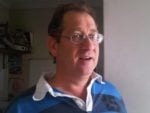


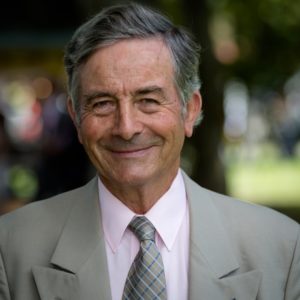
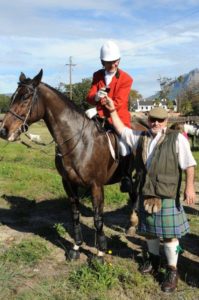
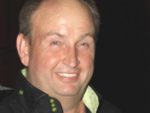
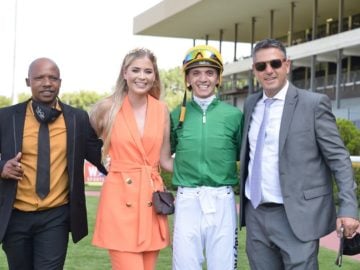
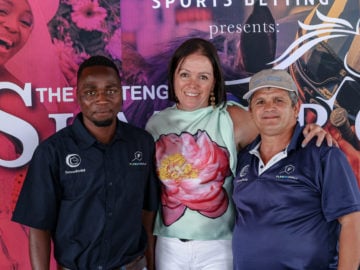
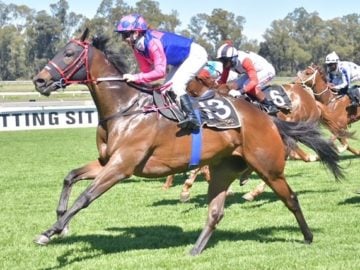
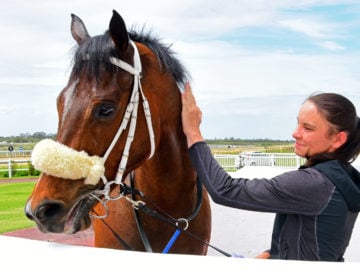
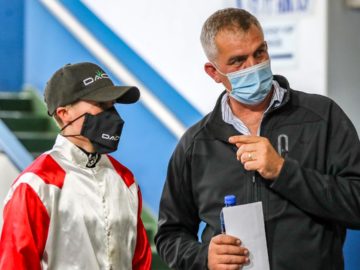


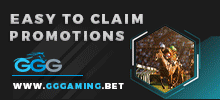



Hi Vere. Just read about you in Hounds magazine! You look good…..hav’nt aged a bit. We still live in the Golden Valley. Best Wishes, Valerie & Di Bishop……Blast from the past!